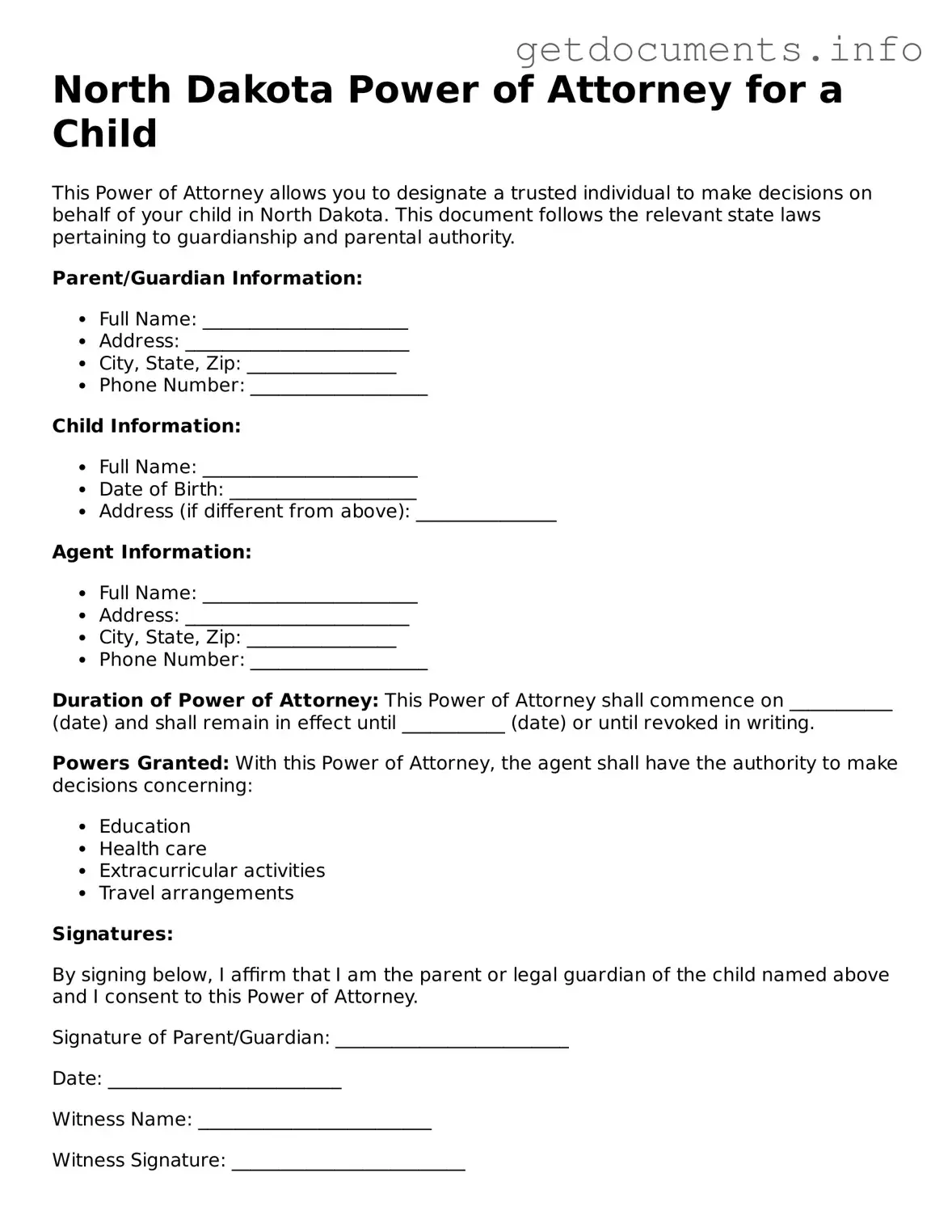Free Power of Attorney for a Child Template for North Dakota
The North Dakota Power of Attorney for a Child form is a legal document that allows a parent or guardian to designate another adult to make decisions on behalf of their child. This arrangement can be crucial in situations where the parent is unavailable or unable to care for their child temporarily. Understanding this form is essential for ensuring your child's well-being and safety during such times, so take action by filling out the form below.
Access Power of Attorney for a Child Editor

Free Power of Attorney for a Child Template for North Dakota
Access Power of Attorney for a Child Editor
Got places to be? Complete the form fast
Fill out Power of Attorney for a Child online and avoid printing or scanning.
Access Power of Attorney for a Child Editor
or
⇩ PDF File
